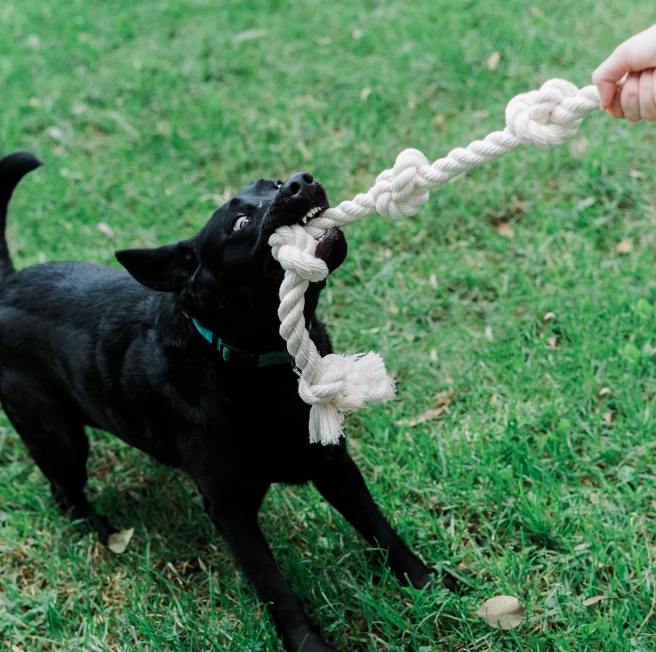December 10, 2025
How Does Adopting an Animal Help The Environment?
Are you considering pet adoption from your local shelter for your next pet? With so many homeless pets out there looking for a loving family, adopting a pet is a wonderful thing to do. After all, adopting a pet could potentially save that animal's life.
However, did you know that adoption also has a positive effect on the environment? When you choose to adopt rather than shop with a breeder, you're reducing your carbon dioxide emissions and helping the planet thrive. It's a win-win situation for everyone.
Read on to learn how adopting a pet from a shelter makes a big difference in that pet's life, and reduces the environmental impact at the same time.
The Environmental Impact of Pets
Our pets have huge environmental impacts. For example, 64 million tons of carbon dioxide are dumped into the atmosphere per year...and that’s just on pet food production alone. In addition, dogs and cats produce pet waste that's equivalent to the same amount of garbage produced by 6.6 million people. Not to mention, an estimated 634 million dog toys end up in US landfills per year which is equivalent to 40,500 tons of waste. Statistics also show that the annual CO2e emissions for an average-sized cat are 310kg and 770kg for an average-sized dog.
So yes, as much as we love our pets, their carbon pawprint has a big effect on the well-being of our planet.
Why Adopt a Pet?
Sadly, roughly 6.3 million companion animals end up in an animal shelter in the US every year. Statistics show that out of the millions of shelter animals, around 920,000 dogs and cats are euthanized annually. Choosing to adopt a pet means that these unfortunate animals get a second chance at life.
It also means that there will be fewer dogs and cats being bred in puppy mills, kitten mills, or by backyard breeders. Choosing to adopt a dog or cat from animal shelters discourages the breeding of unnecessary litters which in turn helps tackle the problem of pet overpopulation...which benefits the environment.
Adopting a rescue animal also brings real emotional benefits to the owner. The act of rescuing and caring for a pet in need can bring real hope and healing to the human doing the resucing. The emotional impact just isn't the same with buying from a breeder. In addition, many people adopt a pet to support their emotional well-being, especially if they live with a disability or struggle with anxiety, depression, or other mental health challenges. A companion animal can ease loneliness, create a sense of routine, and provide comfort during stressful moments, which can be especially helpful while traveling or adjusting to new environments. If you plan to travel with your pet as an emotional support animal (ESA), pleaes keep in mind that you may need a PSD letter from a licensed mental health professional that explains why your animal is necessary for your well-being. This letter acts as official documentation that your companion plays an important role in supporting your mental health, which can help you bring them on flights and other forms of travel where specific rules apply.
As pet owners, we have a choice. Adopting from your local animal shelter reduces unwanted animals from being bred in commercial pet breeding facilities, thereby reducing the impact of pet food production and the costs associated with caring for and housing pets in animal shelters. No matter which way you spin it, adoption reduces the carbon footprint of pets and pet owners alike.
What About Pet Stores or Breeders?
What's the difference between choosing to buy pets from the pet store and adopting? Unfortunately, many pet stores and puppy mills don't procure animals from reputable breeders. Rather, they turn to commercial breeding mills which aim to keep costs to a minimum and profits high. These so-called "puppy mills" or "breeding factories" are not looking after their animals' health and are both neglectful and wasteful and really should be avoided at all costs.
People have historically turned to breeders or pet stores to get a specific breed of dog or buy purebred puppies rather than companion animals for their families. While a good breeder is miles above a breeding mill in nearly all aspects, buying from a breeder is essentially buying new vs buying second hand. In terms of your carbon footprint, second hand is ALWAYS a better option for the planet and your pocket. If a pure breed is what you're truly looking for, many animal shelters and rescue groups have purebred dogs too! Tools like Petfinder can help you find your new furry friend.
Finding Your Perfect Match
Every shelter animal deserves a loving home. It's heartbreaking to think that so many animals in shelters ran away from abusive owners, were lost, or were abandoned. The perfect cat or dog for you and your family is out there, ready to love you and be loved in return. Just imagine a dog wagging its tail when it sees you or hearing a cat purr as you scratch its head...ready to be adopted!
With all this in mind, we encourage you to look up shelters near you and rescue a shelter animal in need. Our planet and your new pet will thank you.






